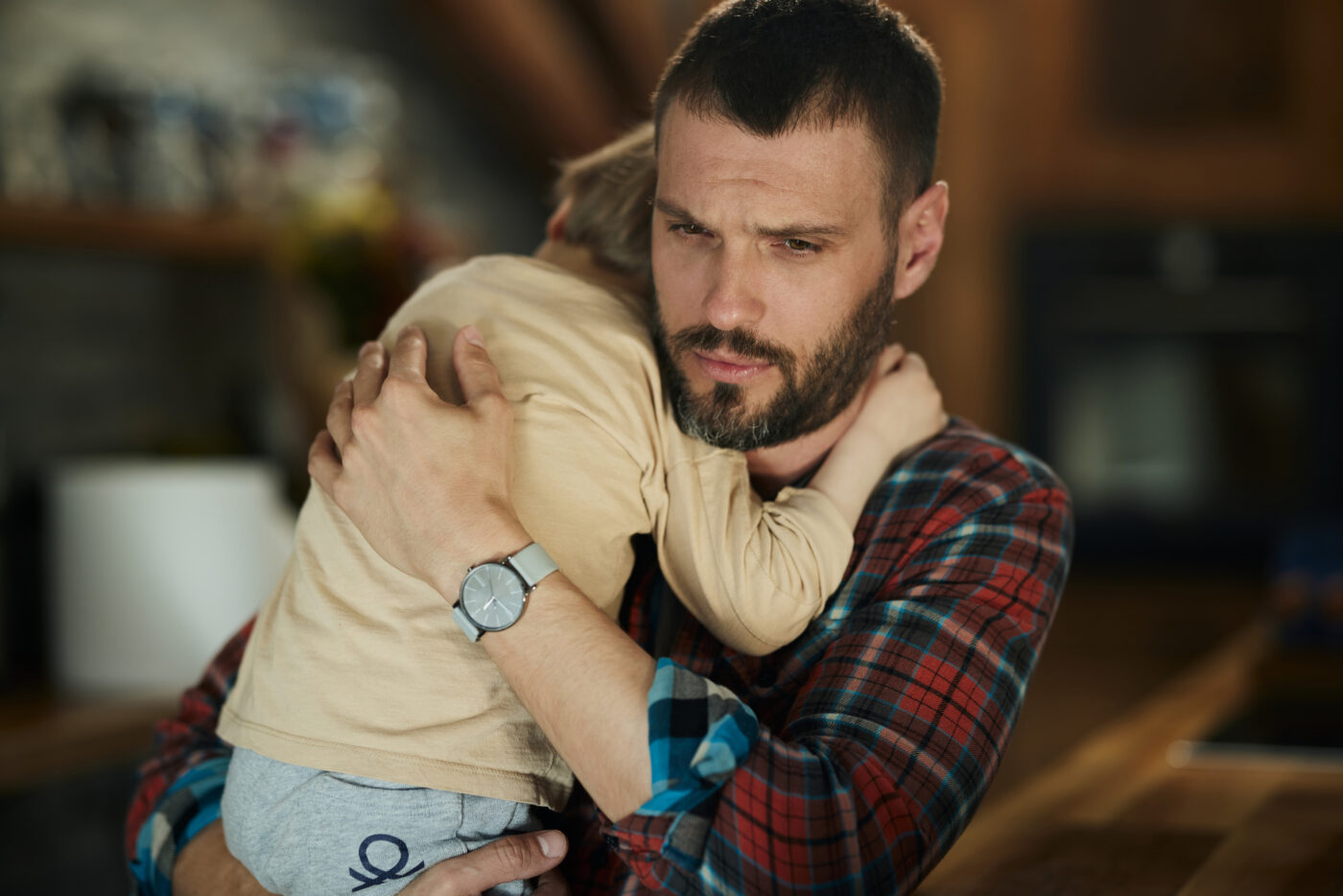I was out in the garage working on a project and was on a tight deadline. As I worked, and even over the buzz of my noisy sander, I heard a scream from inside my house. I stopped working and listened. Was this a big deal or something minor? The screaming continued.
I dropped my tools and went inside to find splatters of blood by my daughter’s bed. She and her brother had been jumping on the mattress, and he had fallen and hit his chin. It was completely split open. I took him to the bathroom, hoping to patch him up quickly and get back to my sanding. No Band-Aid in the world was strong enough to close this gash. We had to get him to the emergency room. That project was going to have to wait. If your child should be your first priority, it means an immediate response to his or her needs is more important than a deadline. Here are 4 times your kid needs you to drop everything.
1. After a Breakup
My wife spent years as a high school swim coach, and that means she’s practically a trained psychologist. I joke, but handling teenage breakups can be difficult. She spent many afternoons at the pool consoling girls whose hearts had been broken by the “love of their life.” People fall in and out of love, and not every relationship will last forever. When your child goes through the end of a relationship, it’s time to drop everything and sit with him or her in the hurt. This may not be your comfort zone, Dad. I know I tend to avoid emotional conversations. But, rather than letting our kids figure these moments out on their own, lean in. If we take this same approach, our kids will feel seen, loved, and understood.
2. When They Fail
My daughter took ballet lessons for a while and really enjoyed it. I remember her first recital. Dozens of kids, all dressed in matching outfits, pranced around the stage in unison. When it came time for a big solo dance, a small child stepped into the center of the kids—and fell. It was an embarrassing moment and a reminder that we are all going to fail. When your child stumbles, consider how Jesus reunited with his friend after Easter (John 21:15–18). Days earlier, Peter had denied knowing Jesus three times. But Jesus was there to forgive his friend and remind him that he loved him, no matter what. Dads, you get the same opportunity when your kids don’t score well on a big test, or miss the game-winning shot, or fall during the ballet. Your kids are more than the sum of their failures. Encourage perseverance and ooze forgiveness. Remind them that sometimes they will come up just short but you love them anyway.
3. When They Are Sick
A friend of mine had a difficult decision to make. He had a lunch meeting scheduled with a local businessman to discuss a great work opportunity. But the meeting fell on the same day his kids became very sick. His 2-year-old son had fever of 104. His even-younger daughter was suffering with a temperature of 102. This friend knew he’d have to delay the important meeting at the risk of hurting the company. The local businessman wasn’t happy about being canceled on, but sometimes we need to drop everything for our sick children. Jesus modeled this in a story from Luke 8. While on his way to see a dying child, a very important meeting, a chronically sick woman touched the hem of his robe, just hoping to be healed herself. He dropped everything to tend to her even though he had an important place to be. If he can stop, we can stop. When our kids are hurt, they need to know that their well-being is our top priority. When we drop everything and tend to them in their most vulnerable moments, they learn how much we care for them, cherish their health, and prioritize their safety.
4. They Get in With the Wrong Crowd
Our children’s mental and emotional health should be important to us as dads. Their peers have a major influence on how they behave. Kids want to be liked and sometimes fitting in requires changing who they are. When we see our kids sliding into bad decision-making patterns, set aside time to sit down with them. Discuss who they’ve been hanging out with and what has brought about their behavioral changes. It may be an awkward conversation, but it’s one that can steer them away from trouble in the future.
Sound off: What are some other times when your child should be your first priority causing you to drop everything?











Huddle up with your kids and ask, “Are there ever good reasons to interrupt another person? What might those reasons be?”